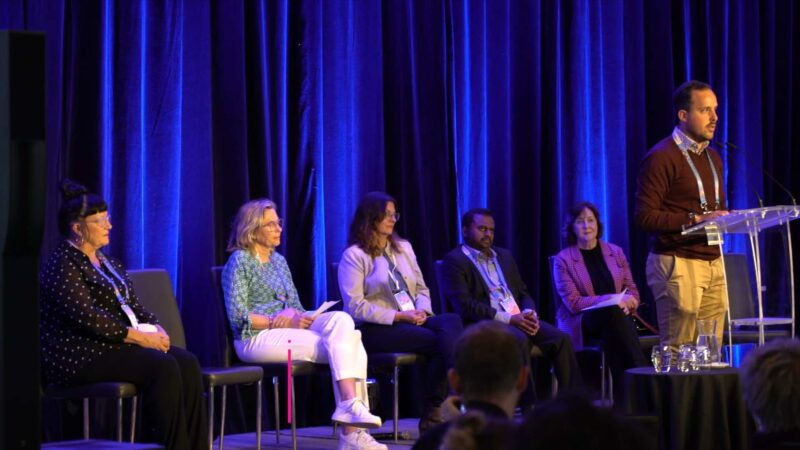CASE STUDY: METHODOLOGY IN BUILDING INFORMATION AND EDUCATION RESOURCES FOR A NATIONAL SCREENING PROGRAM Supporting participation paramount in the upcoming National Lung Cancer Screening Program
With
Dr Rachael Dodd
Senior Research Fellow,
The Daffodil Centre, a Cancer Council NSW & The University of Sydney Joint Venture
AUSTRALIAN HEALTH JOURNAL CASE STUDY
Filmed in Sydney | April 2025
At the recent Screening Conference 2025 in Sydney, hosted by Public Health Association, Dr Rachael Dodd, Senior Research Fellow at The Daffodil Centre, spoke about the information and educational resources created to increase awareness in the healthcare workforce and community on the upcoming Australia’s National Lung Cancer Screening Program commencing in July 2025.
A consortium including The Daffodil Centre, Lung Foundation Australia, Cancer Council Victoria and University of Melbourne were engaged by the Australian Government, through Cancer Australia to deliver a suite of information materials, workforce education resources, and a dissemination strategy for the Program, seen as paramount to support participation.
Dr Dodd talked to Australian Health Journal about the qualitative research process over the past 6 years, from a scoping review of existing lung cancer screening (LCS) information materials and messaging and an environmental scan of existing cancer screening program resources to inform initial development of the key messages, proposed information resources and the dissemination strategy. These were further developed through individual interviews and co-design workshops with the healthcare workforce and community members.
The scoping review identified 34 articles reporting strategies to increase awareness and knowledge of LCS. The environmental scan found 13 provider-focused resources and 18 consumer-focused resources across Australian screening programs. Most LCS-specific resources (18 sets) were from the United States, United Kingdom, Canada and Singapore.
Key ideas arising from the consultations (28 community; 35 health workforce) and co-design workshops (2 health workforce (n=41), 1 community (n=18)) were the need for: clear information about eligibility criteria, a pack-year smoking calculator, easy-to-read detail about the National Cancer Screening Register, examples of symptoms of lung cancer, clarity on referral pathways, a centralised website to host resources, videos of the screening process, guidance for ineligible participants, and managing conversations including smoking behaviours, and lung cancer stigma. Digital resources were generally preferred to paper resources.
Source: Adapted from Screening Conference 2025 Abstract Book
You Might also like
-
Global collaboration in pulmonary fibrosis research
Pulmonary fibrosis is a lung disease that occurs when lung tissue becomes damaged and scarred. The debilitating and fatal disease ended the life of an Australian man 8 years ago.
His son led philanthropic efforts to establish the connection between 2 Australian organisations; Lung Foundation Australia and Centre for Research Excellence in Pulmonary Fibrosis and the US based, Three Lakes Foundation. The three organisations recently announced a collaboration to create a global network for PF research.
-
Gold Coast paediatric emergency nurse leads world’s largest study in securement
Brooke Charters is a dynamic Paediatric Emergency Nurse who works at the Gold Coast University Hospital in Queensland. Brooke’s research became the world’s largest study of its kind and in May 2024 the results of the study were published in JAMA Pediatrics. Her mission is to drive change and enhance the hospital experience for children globally.
-
Study on digital tool for pharmacists in aged care
In March 2022, the Australia government announced $350 million of funding over 4 years to employ on-site pharmacists in residential aged care, starting July 2023. In April 2023, the government made changes to the proposed on-site pharmacists, where the new program will now be delivered by and through community pharmacies. Regardless of how the model will be implemented, the goal remains the same – to improve quality use of medicines and medicines safety for aged care residents.



